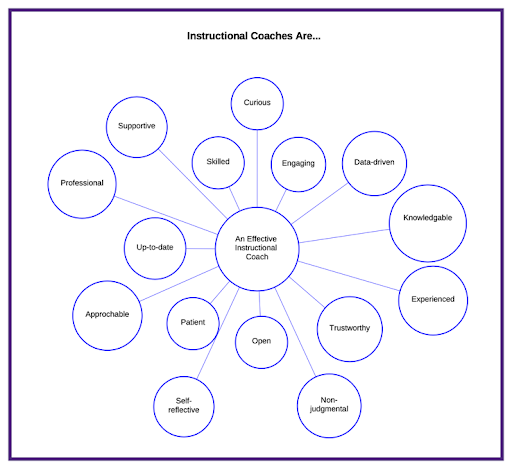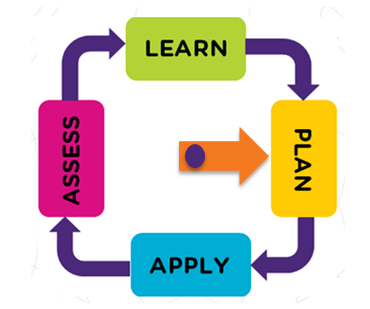Coaches Need Support, Too
JULY 11, 2022
Instructional coaches are increasingly seen as one of the keys to sustainable school change. But good coaching doesn’t happen in a vacuum—instructional coaches need clear objectives, training, resources, and plenty of support from school and district leadership. By taking care of coaches, districts can maximize the success of their instructional initiatives.
Who Makes a Good Coach?
A good instructional coach is an agent of change. Done right, instructional coaching supports and strengthens district initiatives, builds teacher capacity, and ultimately maximizes learning gains. Coaches do all this through one-on-one modeling and mentoring, facilitating Professional Learning Communities (PLCs), and assisting teachers with data analysis, planning, and skill development.
Beth Lamb, our Strategic Partnerships Executive for North Carolina, South Carolina, and Virginia, knows exactly what good coaching takes. As the AIG (Academically or Intellectually Gifted) Coordinator for Martin County School District (NC), she was responsible for coordinating and supporting professional development, identifying and introducing effective classroom strategies, and observing and mentoring classroom teachers. She says, “Coaches work with teachers, but the ultimate focus always has to be on the needs of the students.” When working with teachers, Beth stresses the importance of listening as well as talking and respecting the needs and preferences of adult learners. “You have to have knowledge of best practices and instructional strategies, but you also have to be a good communicator—you have to listen as much or more than you talk. You also need to be a bit of a risk-taker, because you have to be willing to try new things and analyze what is and isn’t working so you can continue to drive improvement.”
What attributes make a good instructional coach? Obviously, knowledge and experience are critical, along with a willingness to continually upgrade their knowledge and skills. That’s why the vast majority of instructional coaches are former (or even current) classroom teachers. But “people skills” may be even more important. The coaching relationship is built on trust and mutual respect. The Bubble Map below describes some of the key attributes of an effective coach.

Supporting Instructional Coaches
How do you support—and develop—instructional coaches? To be effective, coaches need to continue to grow their own knowledge and skills. They also need support from administration. Beth says, “You can work with teachers all you want, but if you don’t have the support of your administrators, and teachers are reluctant to participate, it’s not going to be effective.”
Here are some steps school and district administrators can take to support coaches.
- Set clear objectives. Decide together which initiatives and strategies coaches will support, how success will be measured, and what outcomes the district wants to achieve. Objectives should be reviewed and revised based on student data on an annual basis (if not more frequently).
- Clarify roles and show unambiguous support. Teachers should have a clear understanding of the role coaches will fill in their PLCs and classrooms, what they can expect from the coach, and how they are expected to participate in the coaching process.
- Keep coaching and evaluation separate. Instructional coaches should not be part of the teacher evaluation process. The coaching relationship is built on trust, honesty, and transparency. When coaches are viewed as judges instead of allies, it interferes with the teacher-coach relationship.
- Support continuing education. Coaches need professional development, too. They should be continually upgrading their own skills, investigating and evaluating new strategies to bring to teachers, and staying on top of the latest educational research. Administrators should ensure that coaches have the time, resources, and opportunity for ongoing professional learning.
Provide a safe environment for risk-taking. Coaches are tasked with bringing new ideas and strategies into the classroom based on their observations of student and teacher needs. They are often operating at the leading edge of educational theory and practice—which means that sometimes, things may not pan out as anticipated. Coaches (and teachers) need to know that it is safe to try new things, make mistakes, and adjust their practice in response to feedback.
Thinking Maps and Instructional Coaching
Instructional coaches are often key players in a Thinking Maps implementation. Our Training-of-Trainers and rollout process is built around the needs of instructional coaches and teacher leaders to support long-term, sustainable school change. Our approach to professional development and ongoing training and support is designed to build a culture of continuous learning for teachers and coaches.

Instructional coaches will find plenty of resources to support PLCs, classroom modeling and continuous learning in the Thinking Maps Learning Community (TMLC), including:
- Advanced training modules that can be completed individually or as part of a shared PLC experience.
- Exemplar Thinking Maps—sorted by Map Type, grade level or content area—to spark new ideas for classroom implementation.
- Informative articles and example Thinking Maps exercises in Navigator.
Coaches also love the online Map Builder, which allows teachers, students and coaches to create and share Thinking Maps and multi-Map exercises. Coaches can create and share example Map Builder exercises for teachers to adapt for use in their own classrooms. Coaches and teachers can work together to create shared, collaborative lesson plans and differentiate lessons and student exercises for different student needs. PLCs can also use Map Builder to support Map-based planning, data sharing, and training.
Not a TMLC subscriber yet? Contact your Thinking Maps rep to get started.
Additional Resources for Instructional Coaches
Looking for more information about instructional coaching? Here are some resources we like.
- A Focus on Instructional Coaching (TMLC Navigator) For TMLC subscribers only.
- The Professional Learning Cycle (Thinking Maps) Free download.
- The Definitive Guide to Instructional Coaching (Jim Knight)
- Coaching for Change (The Learning Professional, April 2022)
- 20 Tips for New Instructional Coaches (Elena Aguilar, Edutopia)
- Characteristics of Effective Coaches (ASCD)
The Many Roles of an Instructional Coach (Heather Wolpert-Gawron, ASCD)
Continue Reading
January 29, 2026
If you haven’t explored the TMLC AI Planner Tool, it’s certainly never too late and it’s actually now better than ever. Supercharged with more speed and accuracy so that you get the best of evolving technology, our AI Planner Tool is ready to empower your planning standards and best practices aligned plans that incorporate Thinking Maps.
November 24, 2025
Critical thinking is having a moment in education, but in many classrooms, it is still more slogan than reality. Drawing on their district- and classroom-level work with Thinking Maps, we were joined by four practitioners who shared what it really looks like to build a culture where students—not teachers—do the heavy cognitive lifting. Here are their 5 key takeaways.
September 17, 2025
Coaching is the cornerstone of professional growth in education, empowering teachers to refine their craft and drive student success. These 12 principles are designed to create lasting impact in classrooms and across school communities.
August 20, 2025
The back-to-school season always brings an opportunity for fresh ideas, renewed energy, and intentional planning. Take a walk through our newest AI-powered Planning Tools, designed to make classroom preparation more efficient and student learning more engaging.